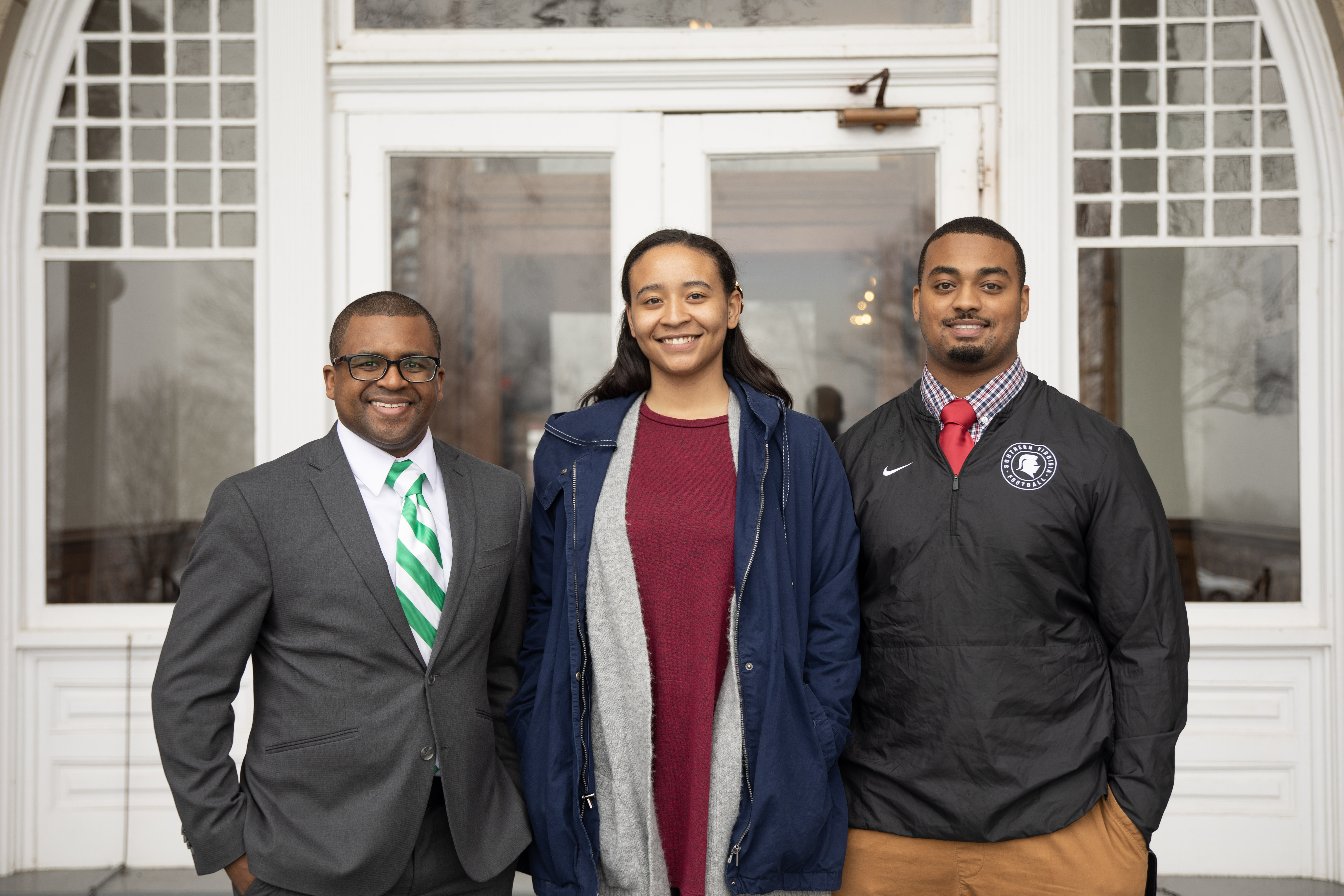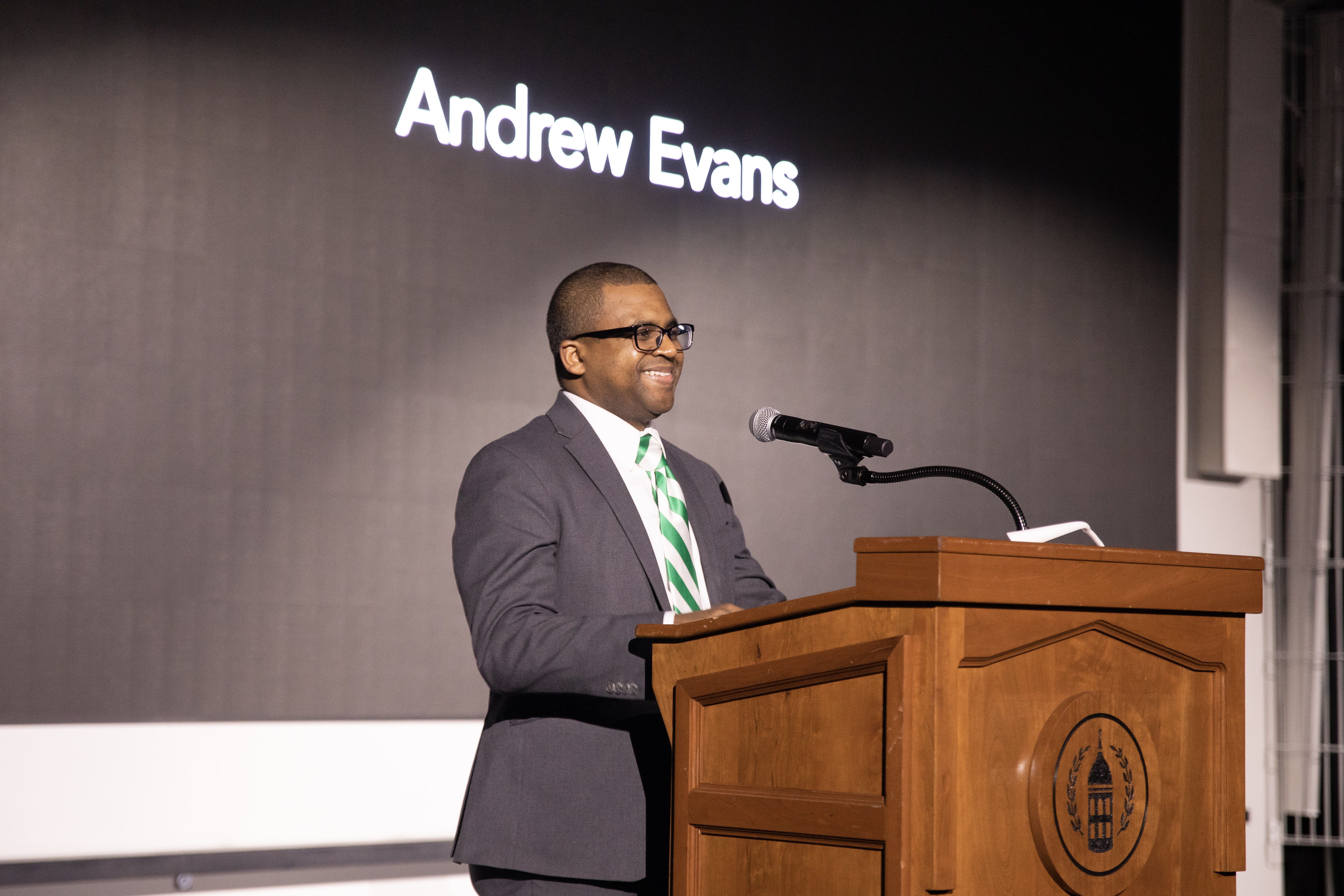Speeches
The Moral Offensive: The Legacy of Dr. King
Buena Vista, Va.—Southern Virginia University welcomed alumnus Andrew Evans (’14) to speak on the legacy of Dr. Martin Luther King, Jr. in a forum hosted by the Black Student Union.
As a student at Southern Virginia, Evans was active in the Reserve Officers’ Training Corps, participated in student government and theatre and was a member of the men’s wrestling team.
After graduating from the University in philosophy, Evans went on to earn his juris doctorate and master’s in public administration from Brigham Young University, and currently works as a law fellow at the Legal Aid Society of Columbus.
Prior to Evans, Black Student Union Vice Presidents Michael and Deija Benjamin shared their thoughts on Dr. King’s life and legacy.
“He was a very, very bright man,” said Michael Benjamin. “I honestly think that Dr. King could’ve been successful with whatever he chose to be a part of, but he chose to use his talents for the greater good and not just to benefit himself.”
Deija Benjamin recognized the sacrifices of both Dr. King and his wife, Coretta, and their examples of choosing love over hate by sharing some of her own encounters with racism and her choice to maintain a positive mindset.
“Being at Southern Virginia University really helped me come out of that [negative] mindset and I really appreciate how loving everybody is here,” told Deija Benjamin. “I believe that with positive energy, we all can…get to that goal of everybody working and living together with zero bias.”

Following the Benjamins, Evans spoke about the responsibility to be active in serving communities, or as taught by Dr. King, to be on the moral offensive.
“In short our movement had taken the moral offensive, enriching our people with the spirit of strength to fight for equality and freedom, even if the struggle is to be long and arduous,” quoted Evans from Dr. King’s 1962 speech in Albany.
Evans drew on Dr. King’s speech, “The Three Evils of Society,” and various passages of scripture from the Bible and The Book of Mormon to demonstrate and suggest how to be on the moral offensive to overcome racism, poverty and war.
Regarding racism, Evans turned to the example of Jesus Christ, citing parables of the woman at the well and the good Samaritan.
“I’d encourage you to read John chapter four, with new eyes,” said Evans. “Jesus was able to navigate these racial tensions by first, understanding the cultural and historical context, second, meeting her at her level in her neighborhood, and lastly, by knowing her as an individual.”

Considering poverty, Evans invited those in attendance to be more aware of the lives and living conditions of millions in the U.S. alone—something he experiences daily as a legal aid.
“I hope you’ll use your education to lift,” said Evans. “I hope you have prosperous careers, but I hope you take the time to participate and assist organizations and people in poverty. To get close to the problem.”
Lastly, in reference to war, Evans suggested following Dr. King’s example of pacifism when presented with violence.
“Dr. King practiced nonviolence, a philosophy and a technique founded in passive resistance and non-cooperation,” explained Evans. “At the time, was what hard to swallow… nonviolence seemed like suicide…But, looking at history we can see that [non-violence has] been effective.”
 News
News